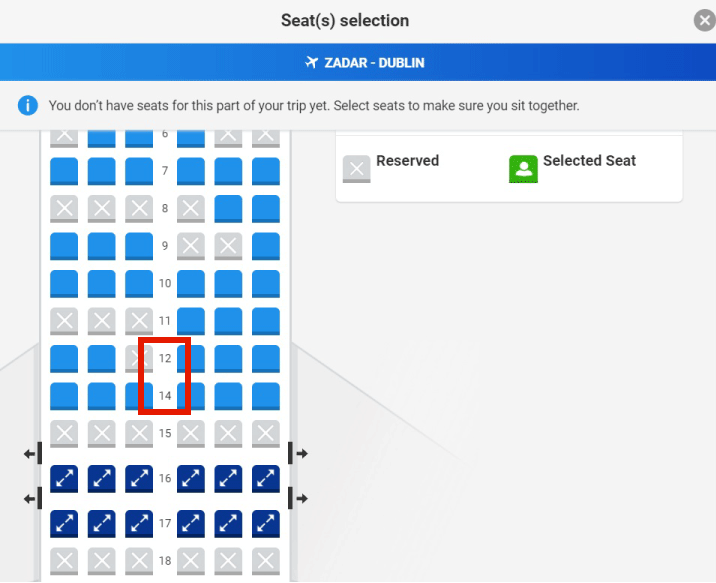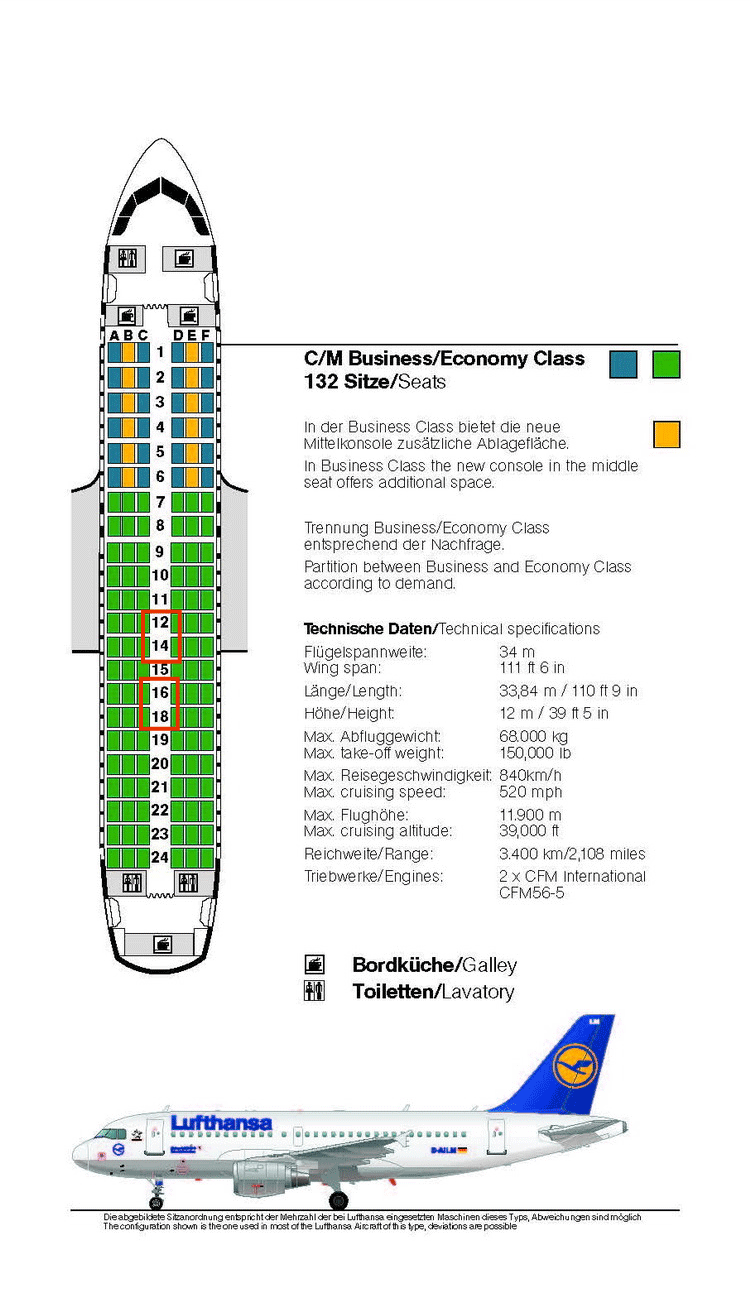Since the day of publication of this article coincides with Friday 13th, we have decided to bring you the most common superstitions connected to aviation.
Psychologists say that superstitions are personal or cultural beliefs that make connections between non-related events and it is believed that they affect life events. Here is the list of most common superstitions:
- Number 13
The fear or avoidance of the number 13 is called Triskaidekaphobia (from Ancient Greek treiskaídeka meaning ‘thirteen’ and phóbos meaning ‘fear’). In case you never noticed, some airlines such as Lufthansa, AirFrance, Iberia, Ryanair, AirTran, Continental, Air New Zeland, British Airways, etc. do not have row 13 in their airplanes. The main reason for this is that there is a large number of superstitious passengers who don’t want to sit in this row, and it would often be empty, so companies decided to remove it.

Ryan air Seat(s) selection
If you are not superstitious, you can also save some money on airplane tickets. On October 27, I compared the ticket price for the same destination just one week apart. On September 13 return ticket from Budapest to Paris cost 75$ and on September 20 price was 92$. Flight prices are very much based on demand – when demand is up they rise and when it is down they fall.
Is there any reason to be scared of this date? According to Aviation Safety Network, the average number of fatal aircraft crashes on Friday 13 is 0.067 per day, compared to a usual daily average of 0.091. So unbelievably, it is safer to fly on this supposedly unlucky day. Through history, there were eight airplane crashes on Friday 13th, and four of them happened on October 13.
- Other unlucky numbers
Lufthansa airlines also don’t have a 17th row in their airplanes. The reason is that in Italy and Brazil, 17 is regarded as unlucky, and Lufthansa is trying to consider as many specific cultural beliefs as possible. United Airlines Polaris does not have a row 13 or 14 either, with row 14 considered unlucky in China as it sounds like “will die” in Chinese. Depending on the airline, numbers like 666 and 911 are not used because of the bad connotation they can bring.

- Pilots taking pictures in front of aircraft
Many pilots and flight attendants believe in different signs before or during the flight. One of the most commonly spread superstitions among pilots is to never take a photo of themselves in front of an aircraft before the flight.
- Weather conditions
Since in aviation business performance is directly related to nature, there are many superstitions connected to weather conditions. For example, many believe that you should not be pointing up at the sky, because it may bring bad weather. When giving a compliment to the weather conditions, pilots are encouraged to address only the sun and not the weather itself.
- Flight numbers
Airlines often retire flight numbers of flights involved in fatal accident or crash. For example, Malaysia Airlines changed the flight numbers of its service between Kuala Lumpur and Beijing, from MH370/371 to MH318/319 soon after a Boeing 777 operating the route disappeared. The flight numbers can evoke negative impressions for travelers, especially for accidents like MH370.
What passengers usually do before flight?
British booking website sunshine.com.uk researched 1,894 fliers about their attitude toward flying and habits before getting in the plane. Here are the results:
| Touching outside of plane before getting on | 17% |
| Taking a good luck charm/mascot onto the flight | 15% |
| Refusing to sit in certain seat numbers | 14% |
|
Reciting prayers or mantras |
11% |
| Only flying at certain times | 8% |
| Only flying with certain airlines | 8% |
| Holding hands to ensure safe take off/landing | 6% |
| Sticking to a certain routine (e.g. ordering same drink) | 5% |
| Only flying from a certain airport | 3% |
| Not flying on certain dates (e.g. Friday 13th) | 2% |
As you can see many people, many people are superstitious when it comes to aviation-connected topics, believing that their small rituals are bringing them luck while everything is up to you and your SMS. To ensure your passengers and crew safe and carefree flight, choose good SMS, train and educate your crew properly because that is what will prevent a fatality.







